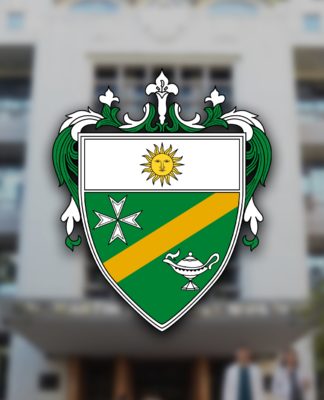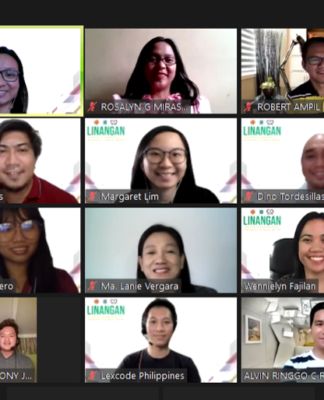FACING the crisis in the Catholic priesthood, the Thomasian community joined the thousands of men in frock who gathered in the First National Congress of the Clergy last July 5-9 at the World Trade Center in Pasay City. An estimated 3,800 priests, seminarians and deacons, and 100 bishops attended. Around 2,500 families volunteered to house the participants for the length of the first-ever national assembly of priests.
With the theme “Renewal of the Clergy, Renewal of the Church, Renewal of the Country, through the Sanctification of Priests.”
“The clergy has encountered a lot of difficulties because of the many scandals,” UST Ecclesiastical Faculties alumni Fr. Francis Payo said. “The priesthood was at its lowest eb, we were demoralized. The congress was intended to raise our spirits, thus a renewal was in order.”
The Congress was attended by Fr. Fausto Gomez, O.P., Fr. James Alamillo, O.P., Fr. Efren Rivera, O.P., Fr. Vicente Cajilig, O.P. and Sem. Noel Vincent Abalajon of the UST Faculty of Theology. The Congress, which was a decade in the making, was organized by the Commission of the Clergy of the Catholic Bishops Conference of the Philippines.
Preparations for Congress by the Office of Education and Student Chaplaincy (OESC) stated back to the early 90s. The OESC was tasked to organize the national meeting of the clergy by working on related programs already existing in Thailand, Malaysia and Pakistan.
“The congress of the clergy is part of the program for priests of the different episcopal conferences in Asia. The Philippine church is so far responding well to the program,” Fr. Cajilig, UST Center for Contextualized Theology and Ethics executive director and a member of the OESC, told the Varsitarian.
The five-day congress consisted of a series of seminars. The first two days were devoted to solemn prayer and retreat followed by three-day seminar that discussed serious issues affecting clergy.
Among the issues discussed was the current vocation crisis in the Philippines. With fewer aspirants now in local seminaries, the trend could lead to a serious shortage of priests in the future.
Most Rev. Antonio Tagle, bishop of Imus, Cavite, around 25,000 more priests are badly needed to serve the 68-million Filipino Catholics. The ideal ratio of one priest per 2,000 parishioners is not being met as statistics show that there is only one priest for every 15,000 Filipino Catholics, leaving the 8,700 priests nationwide overworked.
Bishop Tagle attributed several causes to the shortage of priests, including the stricter screening process in seminaries designed to weed out potential problem candidates. The sex scandals and abuses, meanwhile, discourage many good and idealistic men from entering the seminary.
But despite the controversies, Bishop Tagle said that churches continue to be packed by the faithful during Sundays. The country is still able to send priests for mission abroad to serve the spiritual needs of overseas workers.
“If there’s something good that came from the scandals,” Bishop Tagle said, “it was the people’s realization that priests are also human.”
“The congress was meant to discuss the issues in a form of a national retreat and sharing of reflections, but there were no specific resolutions made,” Fr. Payo said. He stressed that the gathering was to strengthen the commitment of the clergy.
A mass presided by Archbishop Fernando Capalla of Davao ended the three-day seminar, followed by a grand concert called “Dominus Est!” (It is the Lord), featuring singing priests and seminarians.
“Months of preparations by several committees paid off with the Congress proceeding on with minimal glitches and hitches,” Archbishop Rosales said in the final briefing on the Congress to the media last July 9.
An International Congress for Priests, with the theme “Priests for the Formation of Saints for the New Millennium, In the Footsteps of the Apostle Paul,” will be held in Malta on October 18 to 23. Rica May M. Forto and Kathleen T. Valle, with reports from the Manila Bulletin and http://www.rcam.org.
















